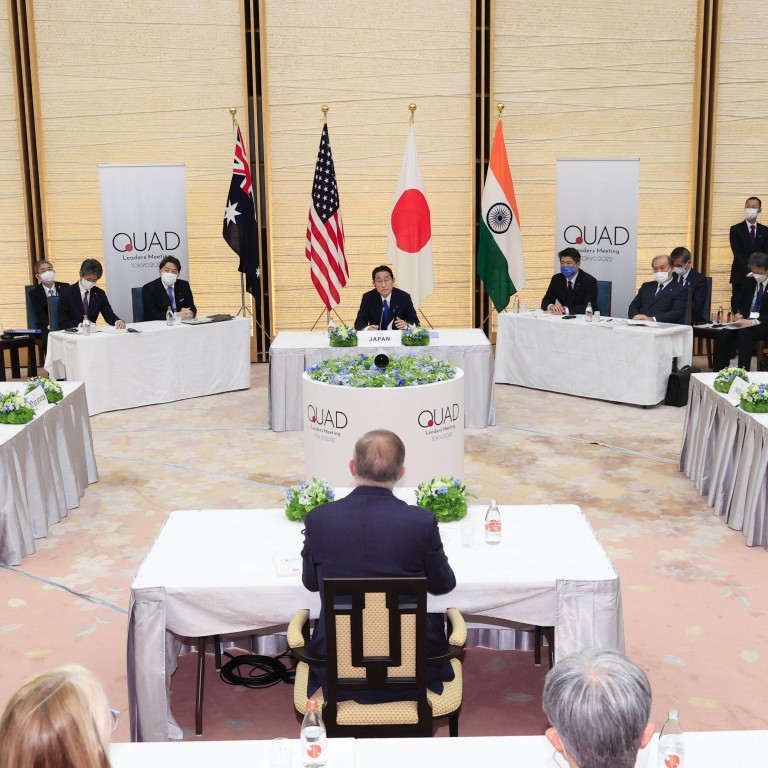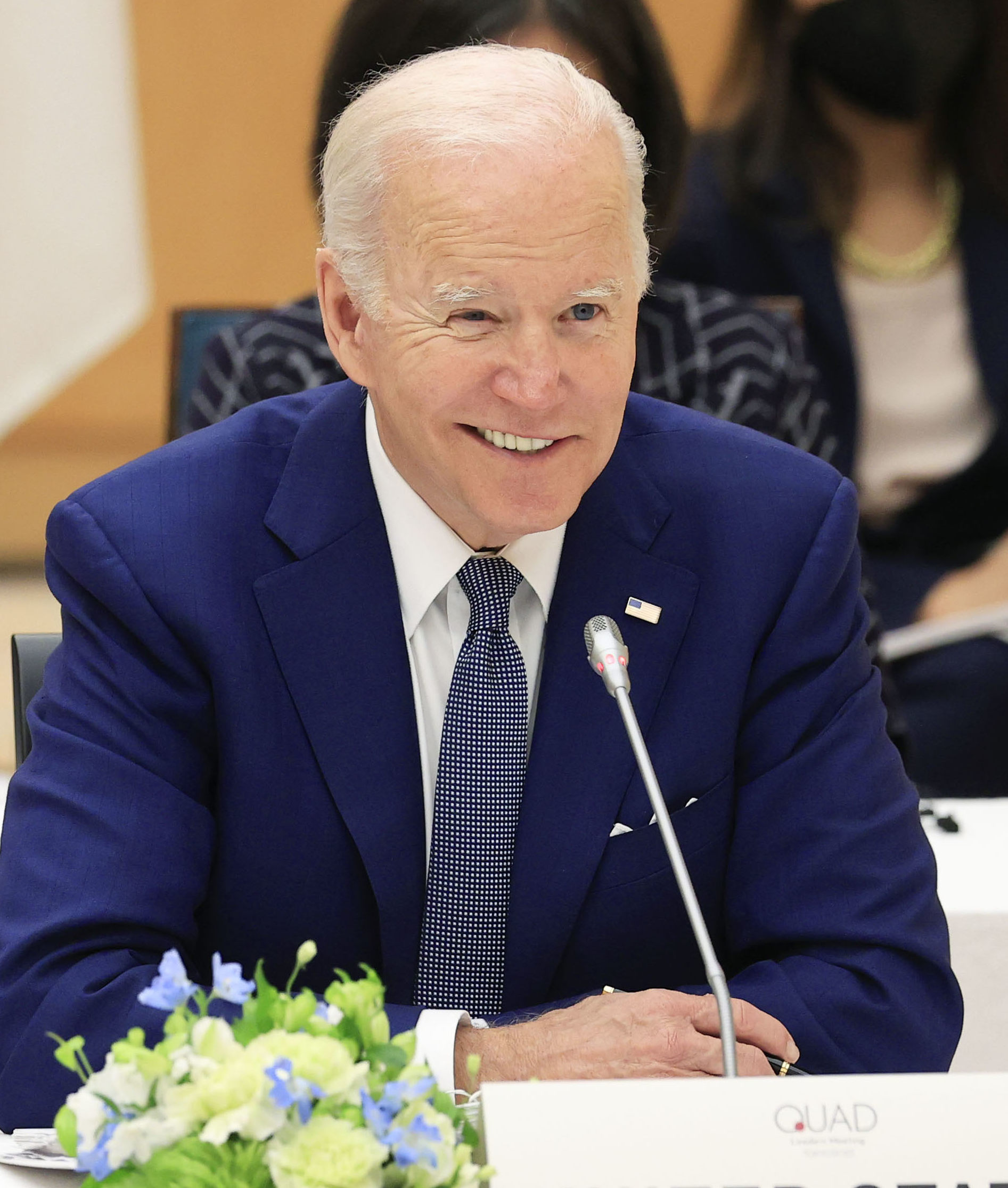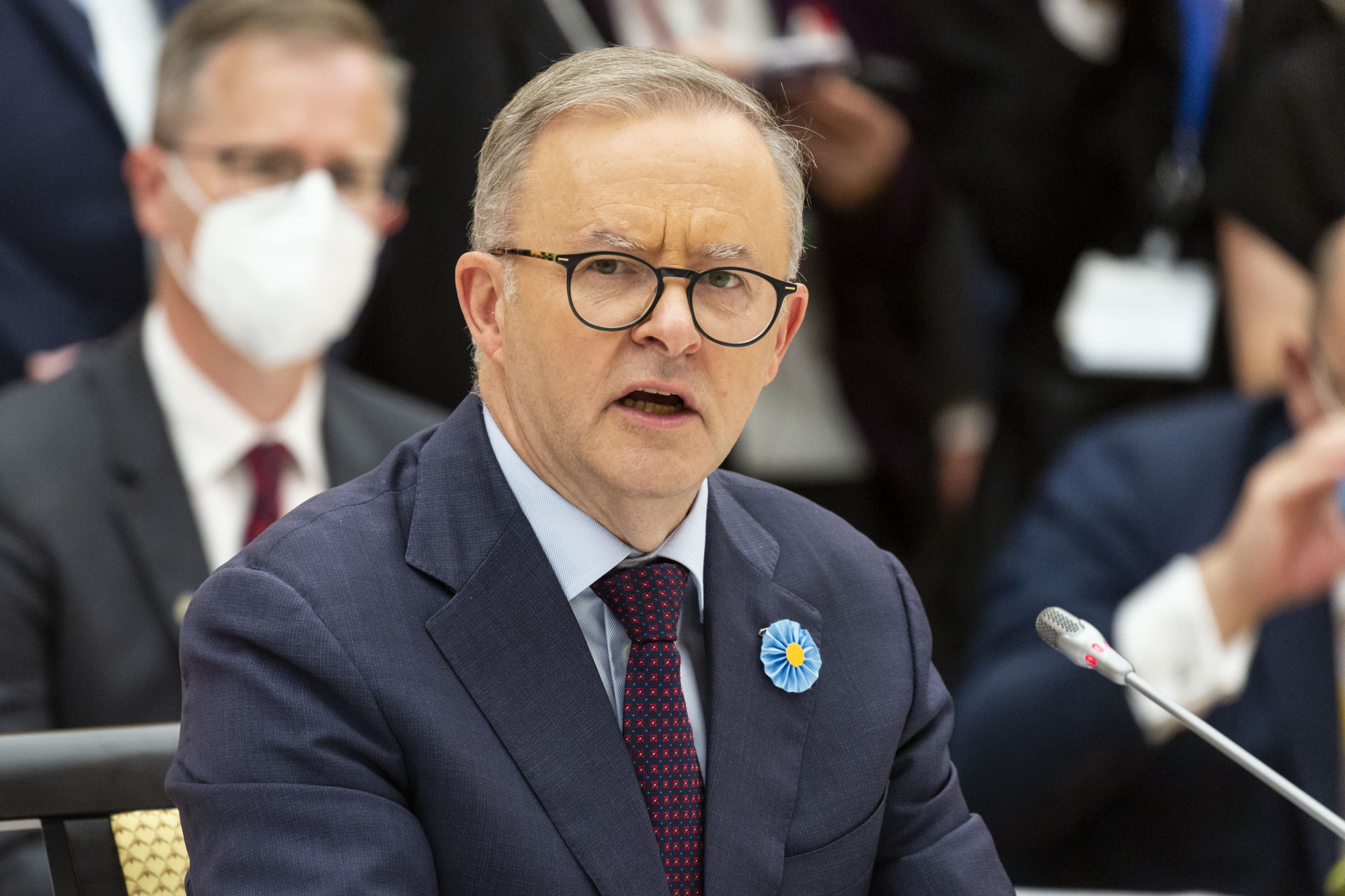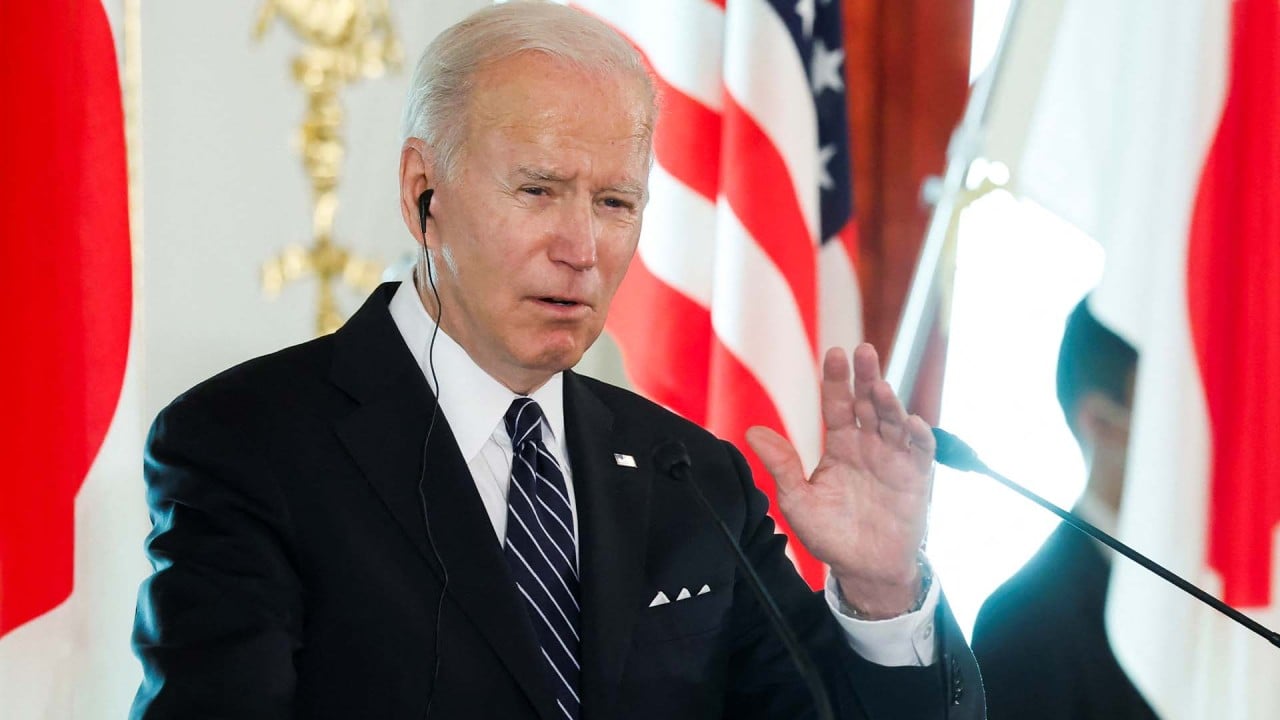
Quad leaders vow to oppose attempts to ‘change status quo by force’, with China and Russia on their minds
- A new maritime initiative launched at the Quad summit in Tokyo promises to enable partners ‘to fully monitor the waters on their shores’
- The Quad also vowed to cooperate on critical and emerging technologies, space and cybersecurity in talks largely aimed at countering China
Leaders of the four Quad nations vowed on Tuesday to oppose all attempts to “change the status quo by force” in the Indo-Pacific, as concerns about China and internal differences on Russia’s Ukraine war loomed over their highly-anticipated meeting.
The carefully worded statement did not explicitly name China or Russia.
With India thus far refraining from condemning Russia’s invasion of Ukraine, the statement also made no reference to Moscow’s aggression. Instead, it noted that the leaders “discussed our respective responses” to the conflict and “ongoing tragic humanitarian crisis”.
Asked about discussions regarding China, Kishida underscored that the Quad grouping was a forum to discuss and advance “practical cooperation” in the Indo-Pacific region, and was not targeting any particular country.
Still, the Japanese prime minister noted that the four countries expressed “grave concern” over “China unilaterally changing the status quo in the East and South China Seas”.

Among the topics discussed were the new Indo-Pacific Partnership for Maritime Domain Awareness (IPMDA), a major US-led maritime initiative that promises to “transform the ability of partners in the Pacific Islands, Southeast Asia, and the Indian Ocean region to fully monitor the waters on their shores”.
The joint statement said the IPMDA would combat illegal fishing, among other things, but avoided the West’s repeated claim in recent times that China is responsible for most of such activity in the Indo-Pacific.
It added that applications were now being accepted for the Quad Fellowship, a new programme sponsoring 100 American, Australian, Indian, and Japanese students per year (25 from each country) to do science, technology, engineering, and mathematics degrees in the US.
Another item on the agenda was global health security. Washington vowed to provide more Covid-19 booster jabs and paediatric vaccine doses to Indo-Pacific countries in greatest need, while India said it will expand its vaccine-manufacturing capacity.
Why the Quad doesn’t spell the future of Asia’s relationship with China
On climate change, the Quad plans to begin two ministerial working groups aimed at developing ‘green’ shipping corridors between member countries and cleaning up supply chains, including minimising methane emissions and deploying clean hydrogen.
The four countries also pledged to cooperate more on critical and emerging technologies, space, cybersecurity and infrastructure.
Biden, Modi, Kishida and Albanese also held bilateral meetings, with Modi meeting Kishida for talks and a working dinner after the Quad summit.
Taiwan focus
The White House later insisted his remarks did not constitute a departure from Washington’s long-standing policy of “strategic ambiguity” on Taiwan.
Analysts said the president’s string of mixed signals on the matter might be a strategy to send a signal to Beijing that Washington would not tolerate an aggressive change to the status quo.
Ryo Hinata-Yamaguchi, project assistant professor at the University of Tokyo’s Research Centre for Advanced Science and Technology, said Tuesday’s summit was significant as it will reveal where Quad members agree and disagree on international security issues.
China would “be looking for any exploitable differences among the Quad states”, he added.
US, India, China vie to help as South Asian nations grapple with economic woes
Jacob Stokes, a fellow of the Centre for a New American Security think tank’s Indo-Pacific security programme, said tensions with China were escalating because of Beijing’s provocative actions and rejection of international norms and laws, not because of steps taken by the US and its allies and partners.
“Xi Jinping doesn’t seem to understand or care, but [China’s] policies under his leadership are the driving force behind the Quad’s resurgence,” he said.
Nonetheless, the lack of pointed comments directed at China suggested the Quad nations have an eye on not upsetting other Asian nations that are eager to maintain cordial ties with all major powers, analysts said.
“The Quad has been careful to avoid hard security issues, to reassure other regional states, and signal to Beijing that their members are not trying to ‘contain’ China somehow,” said Ian Hall, an international relations professor and deputy research director of the Griffith Asia Institute in Australia.
Yan Liang, an economics professor with the Willamette University in the US, said the Biden administration was coming to the realisation that regional countries were not interested in “poking China or turning the Quad into an Asian Nato”.
“They want to have real economic integration and benefits working with the US, rather than being used as an instrument against China,” Liang said.
Russia concerns
The leaders’ post-meeting statements, meanwhile, indicated that Russia’s Ukraine war featured heavily during their talks.
“The four leaders had candid discussions on the impact of the Ukraine situation on the Indo-Pacific region, and we, including India, expressed our concern over the tragic war in Ukraine, and confirmed that principles such as the rule of law, sovereignty and territorial integrity should be observed in any region,” Kishida said.

Australia’s Prime Minister Antony Albanese said “strong views” were expressed about Russia. Speaking to reporters after the Quad meeting, Albanese said Russia’s “unilateral” attack on the people of Ukraine was an outrage.
In April, Russia became the fourth-largest oil supplier to India, with volumes set to increase further in the coming months as low prices spur demand from the world’s third largest oil consumer and importer.
China state oil refiners ‘cautious’ of new Russian oil as sanctions mount
Shamshad Ahmad Khan is an assistant international relations professor at India’s BITS Pilani (Birla institute of Technology & Science, Pilani) Dubai Campus.
He noted that New Delhi has deeper economic, diplomatic and security ties with Russia than with Japan, the US and Australia, and said India is likely to tread cautiously during the Quad summit and will not condemn Russia over the Ukraine issue, even though its host may want it to do so.
Russia’s Lavrov meets India’s Modi, ‘appreciates’ its Ukraine view
Hinata-Yamaguchi said India’s manoeuvres have raised questions about the unity of the Quad and reveal the limits of what the group can do to deal with international security issues, given it is more a “loosely structured mechanism to discuss and promote regional security and economic issues” than a “formal alliance”.
“Hence it was always going to be vulnerable to divergences,” he said.
Additional reporting by Reuters, Agence France-Presse


